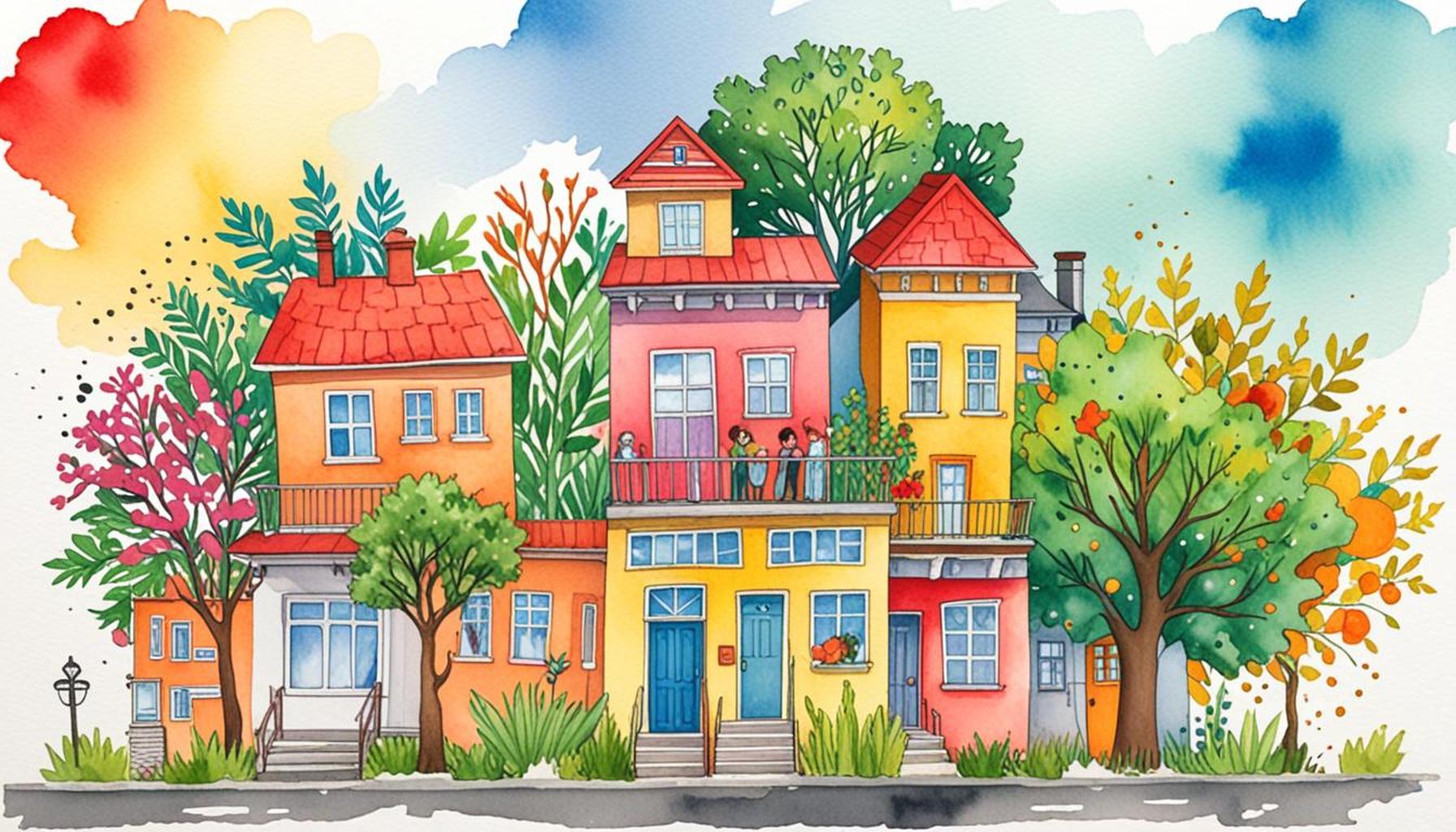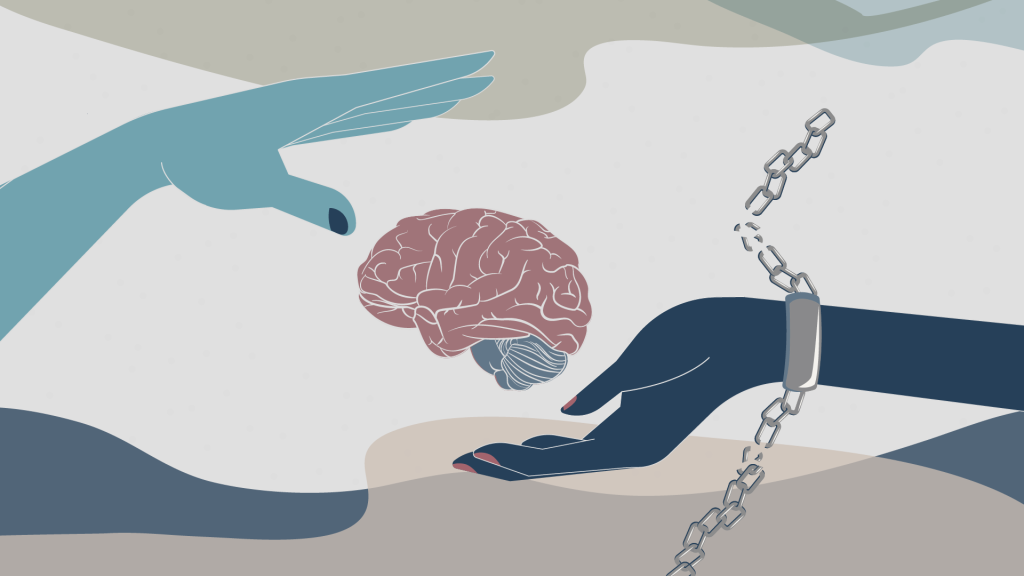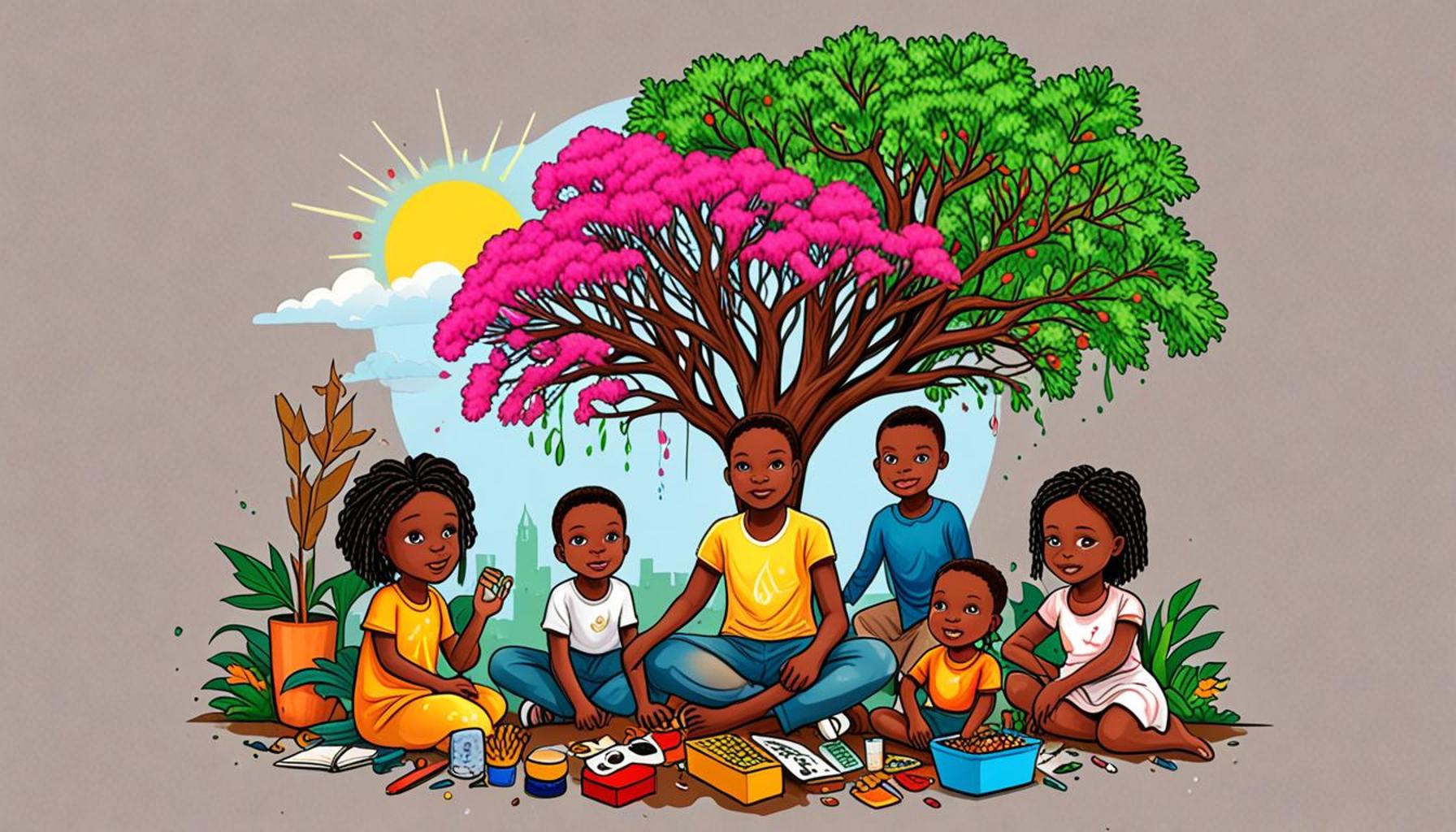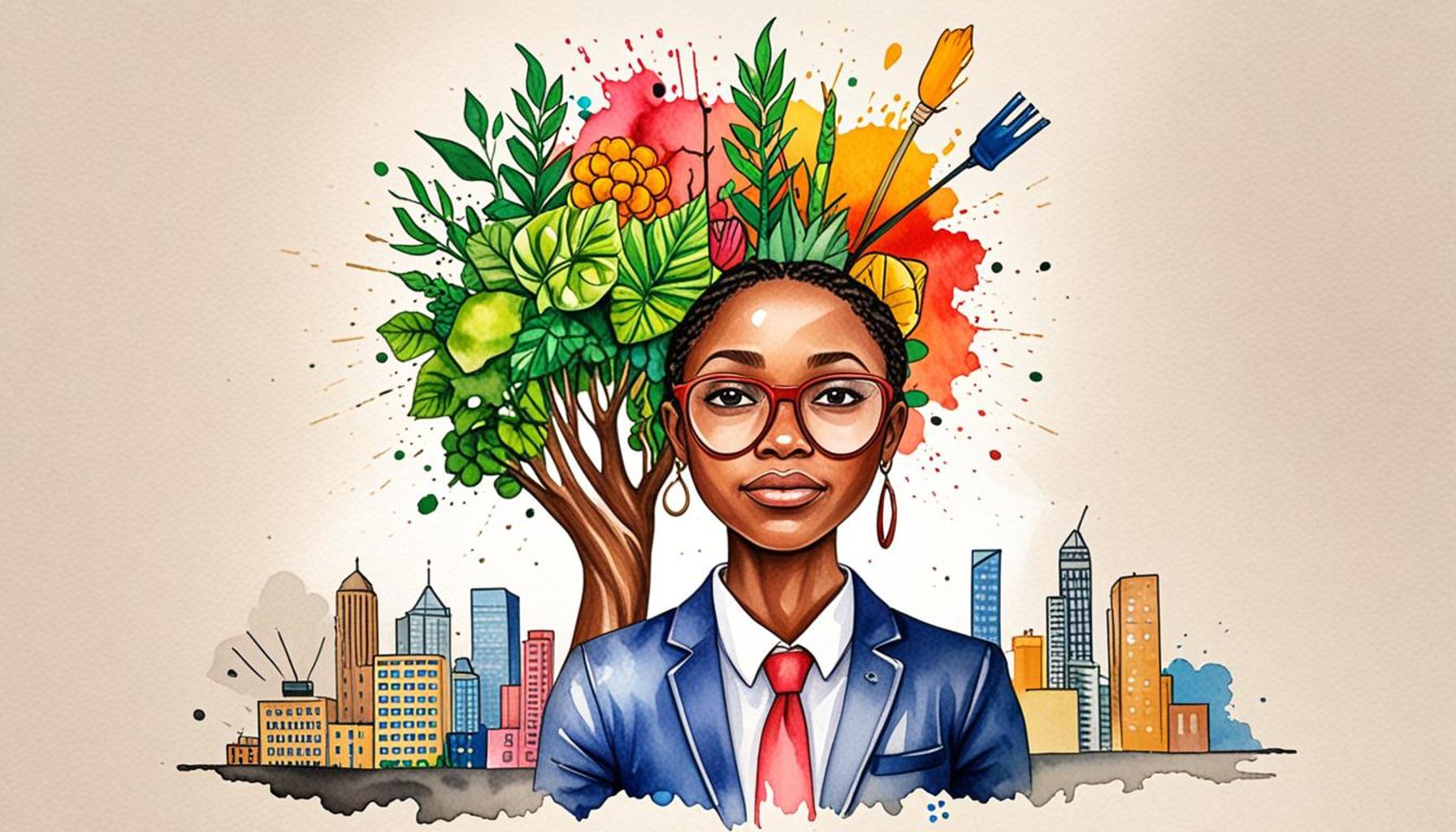Building Resilience in Vulnerable Communities: Growth Mindset Strategies for Collective Empowerment

The Power of Resilience in Vulnerable Communities
Resilience is a multifaceted concept that significantly contributes to the survival and thriving of communities facing challenges. When we speak about vulnerable communities, particularly in a diverse country like Nigeria, we need to consider various factors such as economic instability, education disparities, and environmental challenges. Addressing these issues through resilience-building allows communities to not only survive but thrive in the face of adversity.
A key factor in this journey is adaptability. Vulnerable communities must develop strategies that help them navigate changing circumstances. For instance, in the northern regions of Nigeria, farmers have begun to adapt to climate change effects by adopting drought-resistant crop varieties and implementing sustainable farming practices. This transformation not only secures food supplies but also strengthens local economies.
Collaboration is equally vital. When communities work together, sharing resources and knowledge can significantly enhance their impact. A notable example is the formation of cooperative societies in various Nigerian states, where local farmers come together to pool resources, access better market prices, and share agricultural knowledge. This unity not only boosts agricultural productivity but also fosters a spirit of community and trust among members.
Furthermore, the aspect of self-efficacy cannot be overlooked. Communities must believe in their ability to effect change. This is where educational initiatives play a crucial role. Programs designed to empower youth and women, such as vocational training and literacy campaigns, encourage individuals to take charge of their futures. These initiatives help instill confidence and a sense of agency, enabling residents to pursue opportunities that strengthen their communities.
Implementing Practical Strategies
To foster a growth mindset, practical strategies must be employed. Community workshops serve as effective platforms where residents can learn essential skills, from financial literacy to conflict resolution. These workshops can be tailored to local needs, ensuring maximal participation and relevance.

Mentorship programs can bridge the gap between experience and youth. By pairing seasoned professionals with young adults or aspiring entrepreneurs, vital knowledge and skills can be passed down. This relationship not only empowers individuals but also weaves a tighter-knit community fabric. For example, successful business owners in urban centers can mentor aspiring entrepreneurs in rural areas, helping them navigate challenges unique to their environments.
Finally, celebrating small wins is crucial. Recognizing and rewarding progress, regardless of scale, fuels motivation. Local champions or community leaders can be instrumental in highlighting these achievements, establishing role models for others to follow. This practice builds a sense of pride and encourages continued efforts towards self-improvement.
Resilience, therefore, is not simply a response to hardship but a way of life that can lead to sustainable development. By embracing a growth mindset, vulnerable communities in Nigeria can unlock their potential, foster self-sufficiency, and pave the way for a brighter future. It is this collective journey that invites us to explore and understand the extraordinary capacities of communities striving to thrive against all odds.
RECOMMENDED: Check out this similar article
Strategies for Cultivating a Growth Mindset
Building resilience in vulnerable communities requires a strategic approach that is both inclusive and innovative. A growth mindset serves as a cornerstone for collective empowerment, fostering an environment where individuals believe in their capacity to improve and adapt. This mindset shift can create transformative changes not just for individuals but for entire communities.
One of the first steps is promoting community engagement. Engaging residents in decision-making processes creates a sense of ownership and accountability. Community forums, town hall meetings, and focus group discussions can facilitate this engagement, empowering residents to voice their concerns and contribute solutions. When community members feel heard and valued, they are more likely to invest their time and resources towards common goals.
Education is another critical element in nurturing resilience. By prioritizing educational opportunities, vulnerable communities can equip themselves with essential skills. This may include:
- Technical training in areas like agriculture, which aligns with local needs and market demands.
- Health education to promote well-being and sanitation practices, crucial in areas prone to disease outbreaks.
- Financial literacy workshops that teach budgeting and saving, tailored to the economic realities of the community.
In addition to formal education, fostering a culture of lifelong learning can further the growth mindset. Encouraging community members to share knowledge and skills, perhaps through informal mentorship networks, can amplify personal growth and community solidarity. For instance, a successful artisan could organize workshops to train others, passing on valuable skills while nurturing an atmosphere of collaboration.
Technology adaptation is also increasingly vital. In recent years, mobile technology has penetrated even remote areas of Nigeria, offering new avenues for learning and connection. Access to online resources can dramatically expand the educational horizon. Community partners can facilitate digital literacy programs, ensuring that residents can harness technology for their benefits, be it in agriculture, business, or communication.
Moreover, promoting a culture of experimentation is essential for adopting a growth mindset. Encouraging trial and error allows communities to test new ideas without the fear of failure. Initiatives like pilot projects in sustainable initiatives can significantly impact long-term outcomes. When communities celebrate not just successes but also the lessons learned from failed attempts, they cultivate resilience and innovation.
In conclusion, these strategies combined can lay the groundwork for sustainable growth within vulnerable communities. The ability to adapt, learn, and collaborate creates a formidable foundation for resilience, empowering communities to not only face challenges but to seize opportunities for development. By embedding a growth mindset at the core of their endeavors, these communities can transform their narratives, achieve self-sufficiency, and build a brighter future.
| Key Aspect | Details |
|---|---|
| Community Engagement | Fostering active participation improves social cohesion. |
| Skill Development | Tailored training empowers individuals with practical skills. |
| Collaboration | Partnering with local organizations amplifies resources. |
| Mindset Shift | Cultivating a growth mindset inspires adaptability and resilience. |
Building resilience in vulnerable communities is significantly enhanced by implementing effective growth mindset strategies. One critical element of this approach is community engagement, which encourages active participation from all members, significantly improving social cohesion. When individuals feel valued and recognized for their contributions, it fosters a sense of belonging and accountability.Additionally, skill development plays a vital role in this adaptive process. Tailored training programs can equip individuals with essential skills that respond to the specific needs of their community, whether it be entrepreneurship, financial literacy, or sustainable agricultural practices. Empowerment through education thus becomes a catalyst for change.Moreover, collaboration within the community and with local organizations amplifies available resources. By partnering together, communities can create a more substantial impact than any individual effort could achieve on its own. This collective action not only enhances resource allocation but also strengthens relationships.Lastly, fostering a mindset shift is crucial. Encouraging a growth mindset allows community members to embrace challenges and view failures as opportunities for learning, ultimately inspiring a culture of resilience and adaptability. This is a transformative approach that engages individuals at a fundamental level, urging them to rethink their capabilities and possibilities.
RECOMMENDED: Check out this similar article
Fostering Collaboration and Support Networks
In the quest for building resilience in vulnerable communities, collaboration emerges as a crucial component. When residents work together, they can pool resources, share expertise, and amplify their voices on broader platforms. This collective effort can take many forms, from neighborhood associations to cooperative societies, tailored to meet the unique needs and strengths of the community.
Establishing support networks within the community fosters a protective environment where individuals can rely on one another during times of hardship. For instance, groups can form to assist families facing economic difficulties through food drives or shared childcare arrangements. These networks not only provide immediate relief but also nurture social bonds that enhance community cohesion. In Nigeria, self-help groups, known as “Osusu”, exemplify this by allowing members to contribute small amounts of money regularly, creating a fund that can be accessed during emergencies.
Local partnerships with non-governmental organizations (NGOs), businesses, and educational institutions can further elevate community resilience. These partnerships can bring about resources such as funding, training, and infrastructure development. For example, NGOs dedicated to rural development can work alongside local farmers to implement sustainable agricultural practices, ultimately enhancing food security. In Ibadan, local communities have benefited from collaborations that have introduced solar-powered irrigation systems, which not only improve crop yield but also minimize water waste.
Empowering Women and Youth
Another essential strategy for nurturing resilience in vulnerable communities lies in empowering women and youth. Often, these groups are the most affected by socio-economic challenges yet are also vital agents of change. Initiatives that focus on educating girls and providing vocational training for young people can have far-reaching effects on the entire community. Research shows that when women are educated, they are more likely to contribute to their households and invest in their children’s futures, thus breaking the cycles of poverty.
Programs like the Girl Child Education Initiative in Nigeria exemplify efforts to ensure that girls have access to quality education. This initiative promotes mentorship, scholarships, and skills training that empower girls to aspire towards leadership roles. Furthermore, youth-led organizations can harness technology to craft solutions that address local challenges, creating a generation of young innovators committed to their communities’ development.
Utilizing Cultural Heritage
Leveraging cultural heritage can significantly contribute to collective empowerment and resilience. Every community possesses unique traditions, languages, and practices that can serve as resources for uniting and motivating residents. Integrating cultural heritage into community development programs creates a sense of pride and belonging, which can serve as a catalyst for engagement.
For instance, festivals celebrating local crafts, food, or history not only reinforce identity but can also attract tourism and create economic opportunities. The Argungu Festival in Kebbi State is a prime example, showcasing the rich cultural heritage of the region while boosting local economies through increased visitor engagement and patronage of local artisans.
Encouraging the arts and storytelling within communities not only preserves these traditions but also allows for the expression of local challenges and aspirations. Through theater, poetry, and music, residents can articulate their narratives, fostering empathy and understanding within diverse groups, thereby strengthening community ties.
These multifaceted strategies for collaboration, support networks, empowerment, and cultural engagement pave the way for vulnerable communities in Nigeria to embrace their potential. As communities adopt these approaches, their resilience solidifies, giving rise to confident and capable individuals ready to drive collective growth and transformation.
SEE ALSO: Click here to read another article
Conclusion
In summary, the journey towards building resilience in vulnerable communities calls for a multifaceted approach that intertwines collaboration, empowerment, and a deep appreciation for cultural heritage. By fostering strong support networks and promoting collective initiatives, residents can not only tackle immediate hardships but also cultivate an environment ripe for sustainable growth. This communal synergy transforms challenges into opportunities, enabling communities to thrive despite adversity.
Moreover, empowering women and youth plays an instrumental role in this transformative process. Research underscores the critical impact of education and vocational training on breaking the cycle of poverty. By prioritizing the education of girls and supporting young innovators, communities can unleash a wave of creativity and leadership that propels collective advancement.
As communities in Nigeria harness the strength of their unique cultural identities, they can create a rich tapestry of resilience that not only celebrates their heritage but also brings economic benefits through events and local industries. The thriving narratives of the Argungu Festival serve as a beacon of hope and a model for leveraging cultural pride into actionable empowerment.
In the face of ongoing socio-economic challenges, embracing a growth mindset can catalyze transformation. By adopting strategies that focus on collaboration, empowerment, and cultural engagement, vulnerable communities can navigate their path towards resilience, ultimately fostering a spirit of collective empowerment. The potential for social change lies not just within individuals but within the strength found in unified voices ready to reshape their futures.


